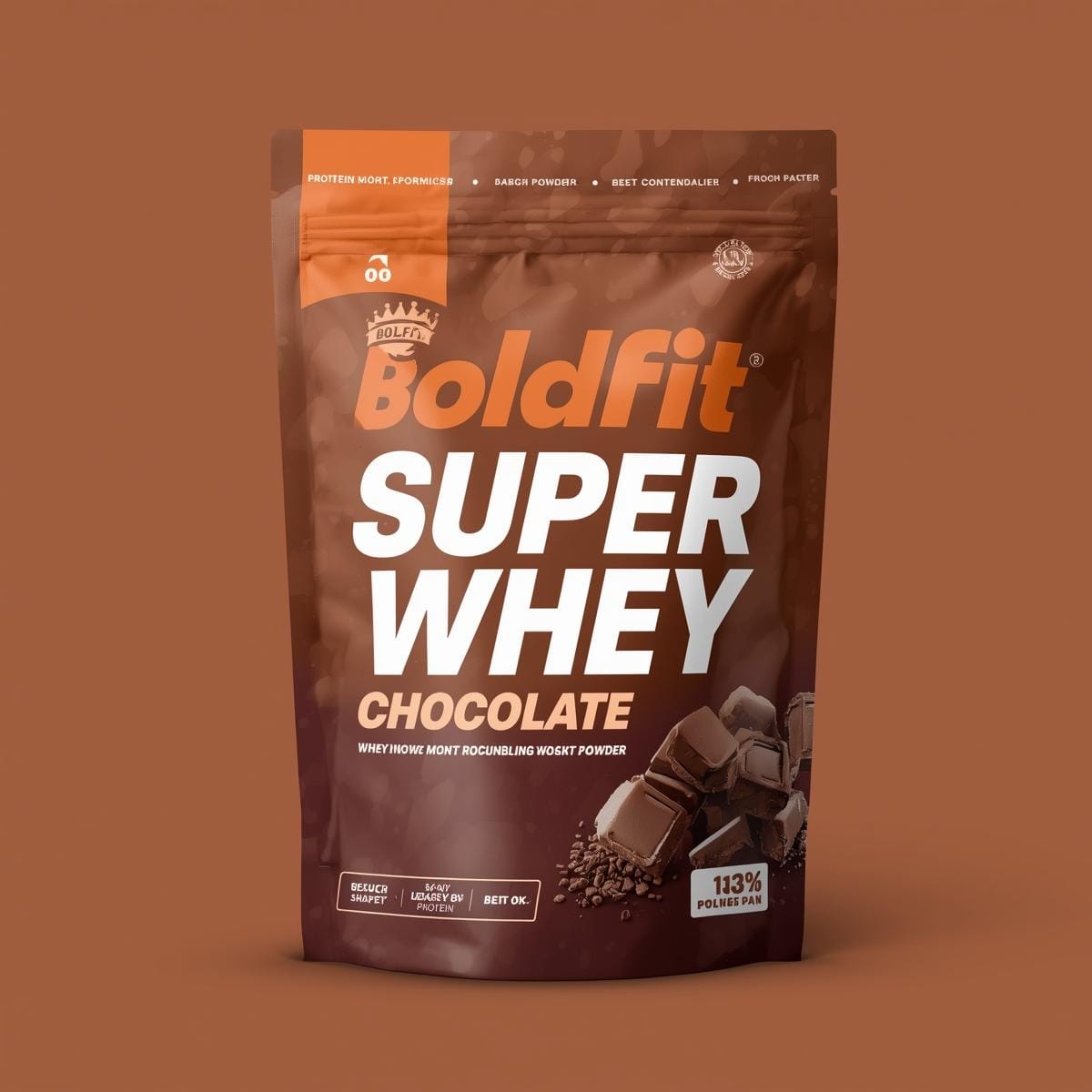Whey protein for women is a high-quality protein extracted from milk during the cheese-making process that helps support weight loss, muscle recovery, and overall fitness. It contains essential amino acids that promote lean muscle growth without bulking up. The Whey protein is ideal for active women with a busy lifestyle. It provides an easy and convenient way to meet daily protein needs and maintain a healthy body.
Types of Whey protein for women
There are mainly three types of Whey protein for women in the market, they are-
Whey Protein Concentrate:
It contains 70-80% protein and a small amount of fats and carbohydrates. It is affordable and ideal for beginners or women looking for balanced nutrition.
Whey protein Isolate:
Contains 90% or more protein and is low in lactose, ideal for those who are lactose intolerant.
Whey protein HydroIysate:
It is pre-digested for faster absorption and easier digestion.
Why do women need Whey protein?
Women need whey protein as it helps meet their daily protein requirements, which are essential for overall health and fitness. Whey Protein is important for women for the following reasons.
Support muscle repair and growth:
Whey protein provides essential amino acids that help repair muscles after workouts and build lean, toned muscles without bulking up.
Improves skin, hair, and nails:
Whey protein for women helps improve skin, hair, and nails because it is rich in essential amino acids like cysteine, methionine, and leucine, which are building blocks for proteins in the body.
Support weight management:
Whey protein for women keeps you fuller for longer, reduces cravings, and boosts metabolism, which helps in fat loss.
Boosts energy and endurance:
Regular intake of Whey protein helps sustain energy levels during workouts or daily activities.
Maintain hormonal balance:
It maintains hormonal balance which affects mood, metabolism and overall health and fitness.
Support bone health:
Whey protein for women contains bioactive compounds along with calcium, which help maintain strong bones. From the above, we know that Whey protein for women is a convenient way to meet their protein needs, support fitness goals, and maintain overall health.
How to Use Whey Protein for Women
For better results, the following steps are to be considered:
- First, choose the type of whey protein: Before using whey protein, select one that fits your goal. The whey types are a) whey protein concentrate, b) whey protein isolate, and c) whey protein hydrolysate.
- Determine the correct serving size: Most women need 20-30 grams of protein per serving. Check the product label for serving size details and adjust based on your protein needs, diet, and fitness goals.
- Determine the time to take whey protein: a) Morning: Start your day with whey protein to boost metabolism and reduce cravings. b) After workout: Take whey protein within 30 minutes of exercising to repair muscles and speed up recovery. c) Between meals: Use as a snack to control hunger and prevent overeating. d) Before bed: A small shake can help with overnight muscle recovery.
- Mix the whey protein: Mix one scoop of whey protein with water, milk, smoothies or oats.
- Combine with a balanced diet: Whey protein is a supplement, not a meal replacement. Pair it with a balanced diet: a) Lean proteins (chicken, eggs, fish) b) whole grains (brown rice, quinoa) c) Fruits and vegetables d) Healthy fats (nuts, seeds, olive oil) This ensures your body gets all essential nutrients for energy and recovery.
- Track protein intake: Women generally need 1.0–1.6 grams of protein per kilogram of body weight daily
- Pair with exercise: Whey protein works best when combined with Yoga, Strength training, and Cardio or HIIT workouts. This helps tone muscles, burn fat, and improve endurance faster
- Avoid overconsumption: Excessive protein consumption can strain the kidneys or cause digestive discomfort. Stick to 1–2 scoops daily unless advised otherwise by a nutritionist.
- Stay hydrated: Protein digestion requires water. Drink plenty of water throughout the day to aid digestion, prevent bloating, and help your body utilize the protein efficiently.
- Consult a nutrition expert: If you are pregnant, breastfeeding, or have health conditions, always consult your doctor or dietitian before using whey protein supplements.
Ideal does of whey protein for women
The amount of whey intake depends on factors such as age, activity level, and goals.
- For sedentary women: 0.8–1.0 grams of protein per kg of body weight per day. Example: A 60 kg woman needs 48–60 grams of protein per day.
- For active women or those exercising regularly: 1.2–2.0 grams of protein per kg of body weight per day. Example: A 60 kg woman doing workouts needs 72–120 grams of protein per day.
How to choose the right whey protein for women
When choosing the right whey protein for women, the following points are to be considered.
Match the product to your goal
- If your goal is to lean out or maintain weight, choose a whey with low carbs and fats.
- If your goal is to build muscle or recover, pick a whey with higher protein per serving and a good amino-acid profile.
- If you have digestive sensitivity, choose a form that is easier on your stomach.
Check the type of whey
- Whey Protein Concentrate (WPC): More affordable but may have more lactose and fat.
- Whey Protein Isolate (WPI): Higher protein percentage per gram, less lactose/fat, good for digestion, and low-calorie aim.
- Whey Protein Hydrolysate (WPH): Pre-digested, faster absorption; may cost more.
Check protein content and quality
- Aim for something like 20–25 grams of protein per serving or more, depending on your needs.
- Look at how much of each scoop is actually protein.
- Check for amino-acid profile, especially leucine/BCAAs, which help muscle maintenance and recovery.
Examine ingredients and additives
- Prefer minimal and transparent ingredient lists; avoid lots of fillers, artificial sweeteners, and unnecessary additives.
- Avoid heavy sweetening, large carb counts, hidden “blends” without clear protein sources.
Digestibility and dietary restrictions
- If you are lactose-intolerant or sensitive to dairy: isolate or hydrolysate forms are better.
- If you are vegan or avoid dairy: maybe whey is not ideal — plant-based protein powders could be better.
- Consider how you feel after using protein powders (bloating, gas) and choose accordingly.
Check brand reputation and testing
- Check brands that offer third-party testing, a certificate of analysis (COA), transparent sourcing.
- Be cautious of very cheap options or ones with “proprietary blends” where protein sources are unclear.
Fit it into your total diet and budget
- A supplement is just that: a “supplement” to your diet. It should fill gaps, not replace good food.
- Consider cost per gram of usable protein (not just tub price) and whether the flavour/texture will suit you (so you will actually use it).
Are there any side effects of whey protein for women?
Generally, whey protein for women is safe for women when consumed in the right amount, but excessive intake can cause some side effects. Here are the side effects of whey protein for women.
- Bloating and gas: It may occur due to lactose content in whey, especially for lactose-intolerant women.
- Weight gain: Excessive whey protein intake without regular exercise and a balanced diet can add extra calories.
- Kidney or liver strain: Consumption of very high protein over time may affect kidney or liver functions.
- Stomach cramps or digestive issues: If you overconsumed the whey, it may lead to discomfort or indigestion.
- Acne breakouts: Some women experience acne due to increased dairy protein intake.
- Allergic reactions: Some products contain artificial sweeteners or additives that can cause mild allergies or headaches.
- Dehydration: High protein intake may increase water loss from the body if fluid intake is low.
To avoid side effects, you choose a high-quality whey protein, drink plenty of water, and maintain a balanced diet rich in natural protein sources. Consult a healthcare professional before using it.
Conclusion
The whey protein for women is an excellent supplement for women who want to lose weight, build lean muscle or meet daily protein needs. It is also ideal for your skin, hair health or boost overall health. Choosing a high-quality whey protein with balanced diet and regular exercise, you will definitely get positive results in your health and fitness journey.
Frequently Asked Questions
1. Can whey protein help in weight loss for women?
Ans: Yes. Whey protein promotes fullness, supports fat loss, and helps maintain lean muscle during weight loss.
2. Can women take whey protein daily?
Ans: Yes, women can safely take whey protein daily, as long as the total protein intake fits within their daily nutritional needs.
3. How much whey protein should a woman take per day?
Ans: Most women benefit from 1–2 scoops (20–40 grams) per day, depending on their body weight, activity level, and diet.
4. Does whey protein make women bulky?
Ans: No. Whey protein alone doesn’t make women bulky. It helps tone and strengthen muscles, especially when combined with exercise.
5. Is whey protein safe during pregnancy or breastfeeding?
Ans: Women should consult their doctor before using whey protein during pregnancy or breastfeeding to ensure safety and proper dosage.

